Frame
The Energy, Environment and Public Health Cluster at the Mahbub-ul-Haque Research Centre weaves together knowledge from the natural and social sciences to create transdisciplinary scholarship that informs environmental, energy and public health policies in Pakistan.
Focusing on data-driven empirical analysis, our research spans the disciplines of environmental and natural resource economics, development economics, health economics, political science, and environmental science and engineering. Each discipline offers a unique perspective, which we combine to inform the contemporary policy debates on the environment, sustainability, and resource management. Our approach allows us to employ a range of models, frameworks, and methodologies to investigate Pakistan’s various environmental challenges, issues related to access to affordable and clean energy and disparities within the public health sector to develop a rich set of policy prescriptions. A staunch focus on evidence-based policy design binds the various discipline-specific elements of our transdisciplinary work.
Context
As one of the most urbanized countries in South Asia, Pakistan faces various challenges related to environment, energy and public health that are also interlinked in many ways. The environmental issues such as urban air pollution are significantly damaging to human health, quality of life and the economy. While problems with the design of the markets, price regimes, regulations and policies for suppliers and consumers of energy and their behaviors within this socio-political context are inhibiting reliable and affordable provision of energy. Growing demand due to urbanization and poor quality of energy infrastructure has further exacerbated the problem. Finally, Pakistan’s health care system is marked by urban-rural disparities in healthcare delivery and an imbalance in the health workforce. Urban problems like overcrowded cities, poor socioeconomic conditions and worsening environmental conditions overwhelm the system and causes an increase in health problems.
Research Problems
Environment:
- Employ a mix of methods, including causal inference, dynamic optimization, and cost-benefit analysis in research work to quantify the causal impact of interventions on individual, household, and firm behavior
- Work on randomized control trials investigating the behavioral consequences of the provision of air pollution forecasts, short-term exposure to air pollution, and public dissemination of firms’ emissions data.
- Assess the potential welfare gains of policies proposed by local environmental protection departments.
- Engage advanced optimization models to analyze dynamic resource use.
Energy
- Learn how we can extend access to clean and modern energy such as electricity and natural gas to these households, when their willingness and ability to pay is expected to be low?
- Investigate if credit constraints, perceptions of service delivery, or social norms play a role in their decisions to use and pay for modern energy when it is available?
- Study to what extent use of off-grid and distributed renewable systems such as solar and wind can play a role in bridging the energy access gap?
- Seek to understand how we can design policies to influence the use of scarce energy resources across time, space and consumer groups?
- Explore energy efficiency and conservation from the perspective of controlling environmental externalities in the production and use of energy services.
- Examine how financial incentives coupled with behavioral nudges (e.g. real time pricing with alerts) can be combined in a simplified way to help consumers conserve energy.
Public Health
- Explore knowledge, attitudes, and practices leading to high fertility rate in women in Pakistan
- Understand the social and physiological factors associated with increase in the fertility rate and its impact on maternal and child health.
- Examine childhood mortality, the role of vaccine preventable respiratory and gastrointestinal tract infections in children under the age of 5, and the role of immunization and short-term antimicrobial treatment in prevention of infection for improvement in child mortality.
- Identify factors associated with child health inequalities, addressing governance and accessibility challenges to immunization, and proposing a way forward to reduce vaccine hesitancy and barriers to immunization, and improve access to basic health care facilities.
- Investigate the role of political and bureaucratic incentives and autonomy in developing and implementing health policy.
- Study the role of community engagement in improving public health, and explore understandings of and trust in public health services.
- Develop an indigenous understanding of factors underpinning malnutrition and its national impact.
We also seek to understand how we can design policies to influence the use of scarce energy resources across time, space and consumer groups. Energy efficiency and conservation is also important from the perspective of controlling environmental externalities in the production and use of energy services. One of the big puzzles in the energy literature is the “energy efficiency paradox”, that is, why consumers fail to adopt seemingly profitable technologies that would help them save money and reduce energy consumption? We need more evidence to diagnose the reasons underlying the underutilization of energy efficiency technologies in developing countries. Credit constraints could certainly slow down the take up of costly technologies but behavioral biases such as time inconsistency, risk aversion, information failures could also play a role and we need appropriate policies to address each of these problems. In addition, we also retain an interest in conducting research on how financial incentives coupled with behavioral nudges (e.g. real time pricing with alerts) can be combined in a simplified way to help consumers conserve energy.
Related Fellows

Dr. Falak Sher is currently working as an Associate Professor (tenured) at the Department of Chemistry, SBA School of Science and Engineering (SBASSE), LUMS. Before joining LUMS in October 2008, he was a faculty member at the Pakistan Institute of Engineering and Applied Sciences (PIEAS), Nilore, Islamabad. Dr. Sher completed his PhD degree in Chemistry from the University of Cambridge, UK, in 2005. Prior to this, he received his MS Nuclear Engineering degree from the PIEAS (2nd position) in 1999 and M.Sc. Chemistry degree from the Institute of Chemistry, University of the Punjab in 1996. Dr. Sher also gained the Postdoctoral Research Experience on two different occasions from the University of Edinburgh (2005) and the University of Cambridge (2007-2008). His research has been published in reputed international journals like Nature, Journal of the American Chemical Society (JACS), Angewandte Chemie International Edition, Chemistry of Materials, Inorganic Chemistry, Physical Review B etc.
Dr. Sher’s research group focuses on synthesis and characterization of functional transition metal oxides with interesting properties and applications. Typically, we investigate perovskite oxides (ABO3) for their potential applications in spintronics, thermoelectric devices, solid oxide fuel cells (SOFC) and photocatalysis for environmental remediation. Samples are synthesized by the conventional solid state chemistry and other soft chemistry methods, and characterized by the powder X-ray diffraction (XRD), scanning electron microscopy (SEM), thermogravimetric analysis (TGA) etc. Physical properties such as magnetic, electronic transport, thermal transport etc. are measured by the available facilities at SBASSE and through collaborations with various national and international research groups. Properties of these materials are correlated with their chemical nature and crystal structures, and various strategies are devised to fine tune and optimize their properties.xoxo
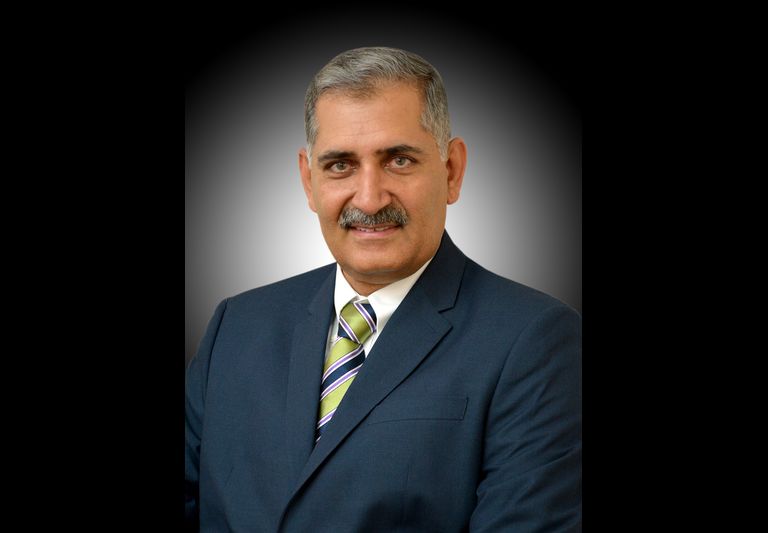
Fiaz Ahmad Chaudhry is the Director of the LUMS Energy Institute and an adjunct faculty in the Electrical Engineering Department at the Syed Babar Ali School of Science and Engineering, LUMS. Dr. Chaudhry possesses a doctoral degree in electrical engineering with over 37 years of experience in integrated power system planning, management, and engineering consulting and teaching in utility and academic environments. In addition, he is CEO of Engineers Guild (Pvt.) Ltd., an Engineering Consulting firm. Lately, he was Managing Director at the National Transmission and Despatch Company (NTDC), Pakistan. For the last 24 years; he has held other senior management and practice lead positions internationally where he provided power system solutions to over 200 companies in North America and Central America, Asia, the Middle East, and Africa.
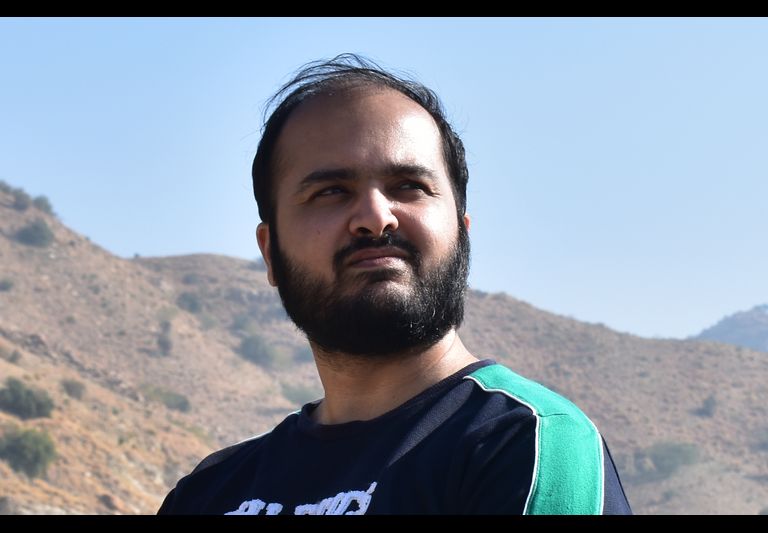
Talha currently serves as an Assistant Professor at the Center for Water Informatics and Technology (WIT) at LUMS. At the Center, he is involved in modelling and decision making for socio-hydrological systems with a focus on water in agriculture. He is also leading field investigations to study the operational hydrology of small rain-fed catchments through the deployment of hydrometeorological sensor networks and associated technologies.
Talha Manzoor is generally interested in the modelling, control, and estimation of socio-ecological systems where environmental phenomena overlap with societal and technological processes. He is especially intrigued by behavioral processes that lead to unexpected outcomes in complex systems. In his research he employs tools from systems and control theory, treating human behavior as a fundamental component of the system, as opposed to the conventional incorporation of human behavior as disturbances, exogenous inputs, or uncertainties.
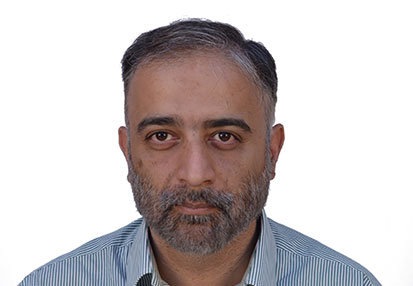
Dr. Syed M Hasan is Assistant Professor in the Department of Economics, LUMS. His primary research interest and teaching field is urban and regional economics and public economics. Dr. Hasan obtained his PhD in Economics from Ohio State University in 2014. His doctoral research focused on spatial policy instruments and firms productivity. Under the broad theme of sustainable development, Dr. Hasan also has interest in research on resilient cities. In this context his research focuses on areas related to water conservation, economic cost of congestion and energy choices by households and related carbon emissions in large urban centers of Pakistan. Dr. Hasan has several publications in international peer-reviewed journals. In 2007 he did he master’s in public finance from GRIPS, Tokyo, Japan. Prior to joining the academia, Dr. Hasan has worked in the civil service of Pakistan.
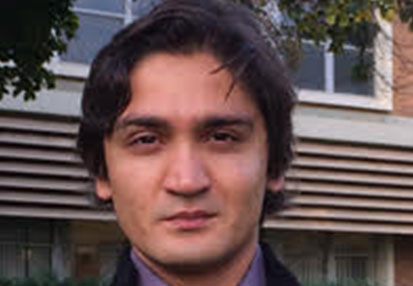
Dr. Sanval Nasim is an assistant professor of economics at the Lahore University of Management Sciences (LUMS). His primary research field is environmental and natural resource economics. His research work includes behavioural experiments on air pollution forecasts, information-based pollution mitigation interventions, optimal control modelling of water resources, and cost-benefit analysis of clean technology adoption. He obtained his PhD in environmental and natural resource economics from the University of California, Riverside in 2015 and a BA in economics-mathematics and in history from Colby College in 2008.
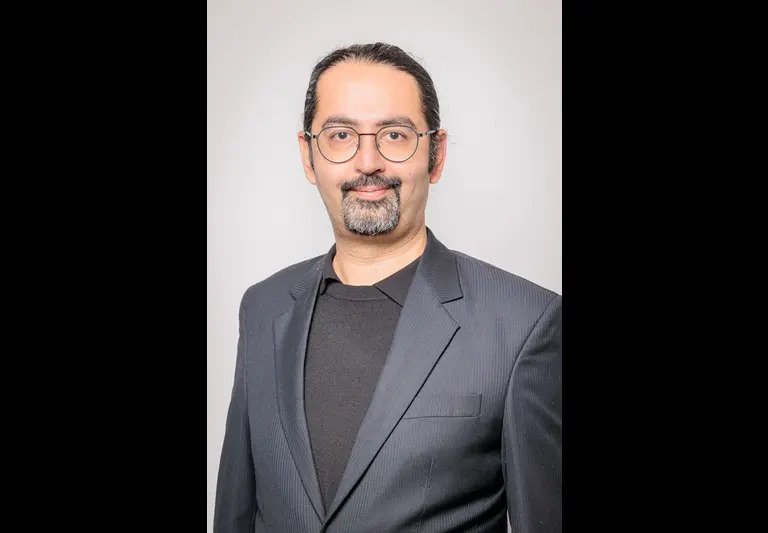
Asjad Naqvi is working as a Senior Economist at the Austrian Institute for Economic Research (WIFO), as an Assistant Professor at the Institute for Ecological Economics, Department of Socioeconomics, Vienna University of Economics and Business (WU), and as a Researcher Scholar, in the Advancing Systems Analysis (ASA) program at the International Institute for Applied Systems Analysis (IIASA). From 2011-2013, Naqvi was the Research Director at the Center for Economic Research in Pakistan (CERP). Dr. Naqvi received his Ph.D. in Economics from the New School for Social Research (New York) (2007-2012) and his habilitation in Economics in 2020. Prior to 2007, he was based at the Lahore University of Management Sciences (LUMS) working on various research projects.
Currently, Dr. Naqvi is interested in exploring topics of environment inequality, cascading impact of climate shocks, climate finance, and North-South interactions. He works with macroeconomic models, agent-based models, and causal inference (DiDs, RDDs).
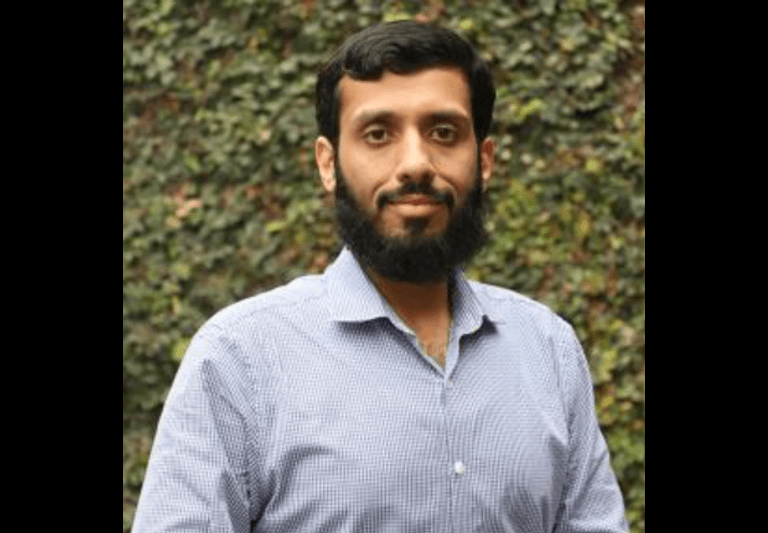
Hassan Jaleel is an Assistant Professor at the Syed Babar Ali School of Science and Engineering, LUMS. His research interests are in the areas of real-time distributed optimization, game theory, and stochastic geometry. Dr. Jaleel is interested in designing learning mechanisms with global performance guarantees for self-interested agents in large-scale complex networks. Typical application domains of his research include swarm robotics, sensor networks, and irrigation networks. Dr. Jaleel was a Fulbright scholar from 2009–2013 and is a member of IEEE.
Dr. Jaleel received his M.S. and Ph.D. degrees in Electrical and Computer Engineering (ECE) with a specialization in Systems and Control from the Georgia Institute of Technology, Atlanta, GA, USA.
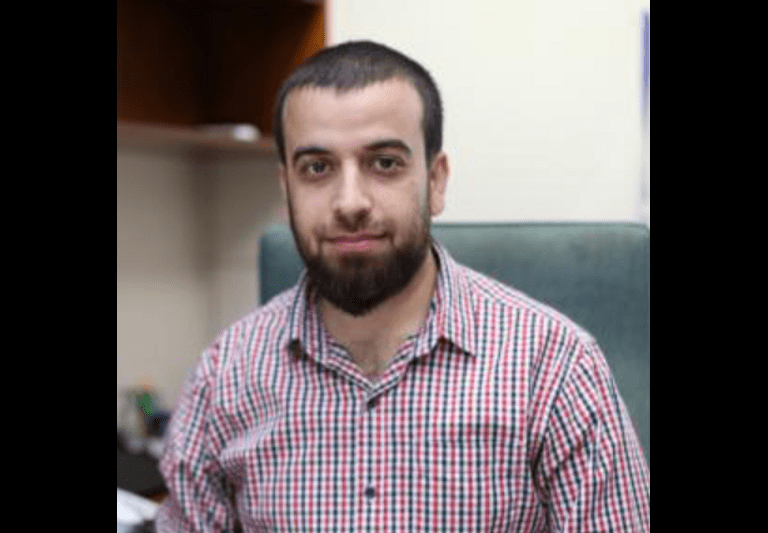
Muhammad Hamad Alizai is an Associate Professor of Computer Science at the Syed Babar Ali School of Science and Engineering, LUMS. He brings years of experience as a faculty, researcher, software engineer, and technical lead both in industrial and academic settings.
Dr. Alizai has authored a book and published more than 60 scientific papers while abroad and indigenously from Pakistan, several of them in top-flight ACM/IEEE journals and conferences (CoNEXT, SenSys, IPSN, BuildSys, LCTES, EWSN, TOSN, TECS, CCR). He regularly serves on the organizing and program committees of leading CS conferences such as MobiSys, SenSys, IPSN, BuildSys, SECON, IMWUT, and PerCom. He is a certified trainer for Instruction Skills Workshop and regularly conducts pedagogical workshops for faculty at LUMS.
Dr. Alizai has received the Vice Chancellor's Award for Teaching Excellence (2022), and Georg Forster Research Fellowship Award (2021-22), and has been the Best Paper Award candidate at ACM EWSN (2020).

Maira Hayat is an Assistant Professor of Environment and Peace Studies at the University of Notre Dame. Her research develops a conversation between the anthropology of environment, bureaucracy, and law, and is animated by postcolonial critique. Hayat teaches classes on statecraft, environmental politics, and climate change, as well as on community-engaged research. During the academic year, 2022-23, she will be a Member of the Institute for Advanced Study, Princeton.
Hayat's work has been supported by the Wenner-Gren Foundation, the National Science Foundation, and the American Institute of Pakistan Studies; the Pozen Center for Human Rights, the Committee on Southern Asian Studies, the Nicholson Center for British Studies, and the Leiffer and Orin William Fellowships at the University of Chicago; and the Haas Center for Public Service and Stanford Arts at Stanford University. Prior to joining Notre Dame, she was a Postdoctoral Fellow at the Department of Anthropology and the Woods Institute for the Environment at Stanford University.
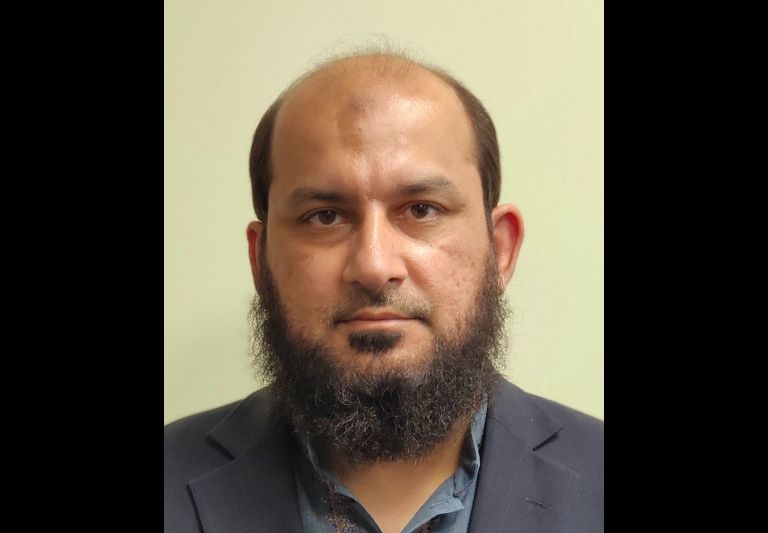
Dr. Naveed Arshad is presently an Associate Professor and Director of the National Center in Big Data and Cloud Computing (NCBC) at Lahore University of Management Sciences. He is also the Director of Energy Informatics Group (EIG) and Co-Founder of LUMS Energy Institute.
Dr. Arshad played a key role in formulating the first National Electric Vehicle Policy of Pakistan in collaboration with the Ministry of Climate Change and the Ministry of Industries and Production. Using energy data, his group developed an energy forecasting and optimization system for Pakistan’s National Grid that saves billions in idle fuel costs in collaboration with Ignite National Technology Fund, and the Ministry of Information Technology and Telecom
Dr. Arshad has published close to fifty research articles in top international journals and conferences. He has also authored PRECON, the most comprehensive open residential energy data collection in the world. He is the co-founder of multiple start-up companies in big data and electric vehicle domains.
The research interests of Dr. Arshad include electric vehicles, short, medium, and long term forecasting of energy demand, renewable energy generation forecasting for wind and solar resources, demand-side management in electric transportation, agricultural, residential and industrial sectors, energy efficiency, and renewable energy integration in the existing building stock. Dr. Arshad holds MS and Ph.D. in Computer Science from the University of Colorado at Boulder.
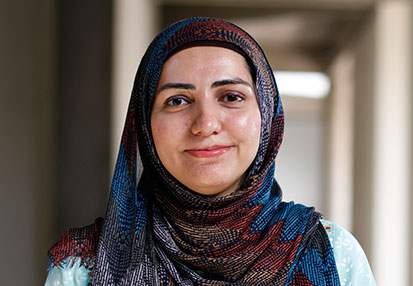
Dr. Ayesha Ali is an Assistant Professor in Economics at the Lahore University of Management Sciences. She does research in applied microeconomics with a focus on topics in energy economics and information economics.
Her research makes use of large administrative data sets, field data collection, and rigorous empirical analysis to answer policy relevant questions. Her current research examines the effect of electricity outages on household welfare, the effectiveness of policies to control electricity theft, understanding and countering misinformation on social media among low digital literacy populations, competition and news media quality, and the economic consequences of internet censorship. She completed her PhD in Economics from the University of Toronto, Canada in 2016.
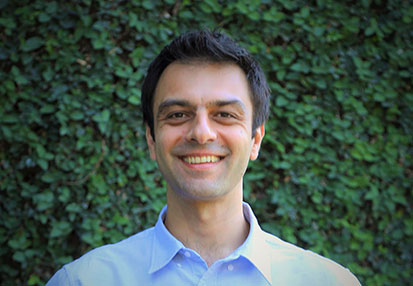
Dr. Agha Ali Akram is an Assistant Professor in the Department of conomics at the Lahore University of Management Sciences. He received is Doctorate in Environmental Economics (2014) and Masters in Environmental Management (2008) from Yale University. Prior to joining LUMS, he was a Visiting Fellow at Yale University (2016-2017) and a Postdoctoral Fellow at Evidence Action (2014 - 2016), where his research delved into the impact of seasonal income support programs n mitigating hunger risk in Bangladesh and the impact of innovative onditional cash transfer mechanisms on improving vaccination rates in Pakistan
Ali’s research explores themes in public health, including drinking water quality, mental health, nutrition and family planning. His work uses field experiments to test innovations in these research areas, both in Pakistan and outside. His portfolio currently includes an experiment to improve youth mental health in Sierra Leone; field experiments to improve child nutrition and access to improved drinking water quality in Karachi, Pakistan; and a field experiment to improve contraceptive uptake in Lahore, Pakistan.
Ali is an affiliated fellow with Interactive Research and Development (IRD), the Institute for Development and Economics Alternatives (IDEAS), nd the Consortium for Development Policy Research (CDPR). He has been awarded several research grants including National Science of Foundation Doctoral Dissertation Research Improvement Grant for Research in Economics (2012), Yale Institute of Biospheric Grant (2012), GiveWell (2014), Shahid Hussain Foundation grant (2018), LUMS Faculty Imitative Fund (2018) and most recently the World Bank’s Strategic Impact Evaluation Fund (SIEF) grant. He is also a John F. Enders Fellow (2012), Tropical Resource Institute Fellow (2010), Fulbright Scholar (2006) and a Leland Burt Scholar (2006).
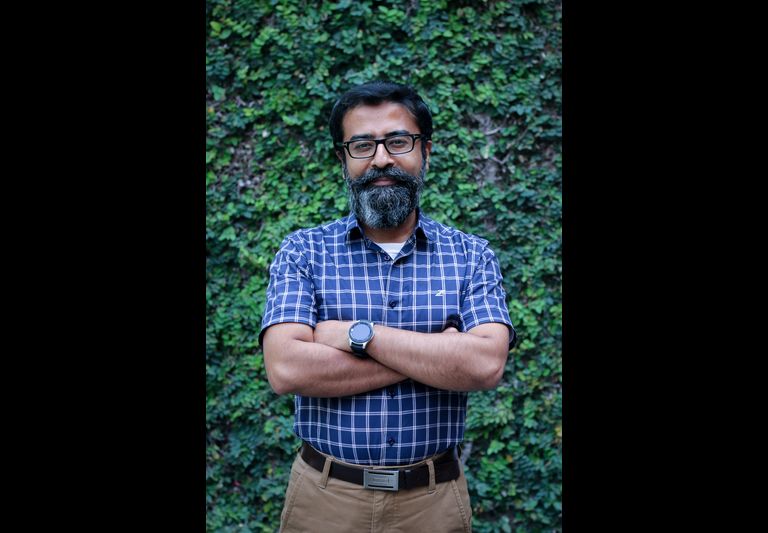
Momin Uppal is a tenured associate professor of electrical engineering at Lahore University of Management Sciences. He received his Ph.D. and MS in Electrical Engineering from Texas A&M University in 2010 and 2006, respectively. Earlier, he received his BS in Electronic Engineering with the highest distinction from GIK Institute of Engineering Sciences, Pakistan in 2002. At LUMS, he serves as the director of the Advanced Communications (AdCom) Lab and the Smart Data Systems and Applications (SDSA) Lab. He has published over 50 papers in leading IEEE Journals and Conferences and has two US patents to his name. During his time at LUMS, he has secured research funding from national and international agencies including Ignite (formerly National ICT R&D Fund), Higher Education Commission (HEC) of Pakistan, National Instruments, and United Kingdom's Grand Challenges Research Fund (GCRF). He is currently leading an Rs. 220 million multi-PI project from the HEC that broadly deals with the use of technology and data-driven decision-making to save our cities. His research interests lie in urban computing, statistical signal processing, machine learning for wireless communications, back-scatter communications, and environmental sensing using radio signals.
Momin is the recipient of the LUMS’ Vice Chancellor’s Teaching Excellence Award 2021 (university-wide award), and the LUMS’ Department of Electrical Engineering Distinguished Teaching Award 2019. He has also been nominated by LUMS for the HEC Best University Teacher Award 2021 (national award).
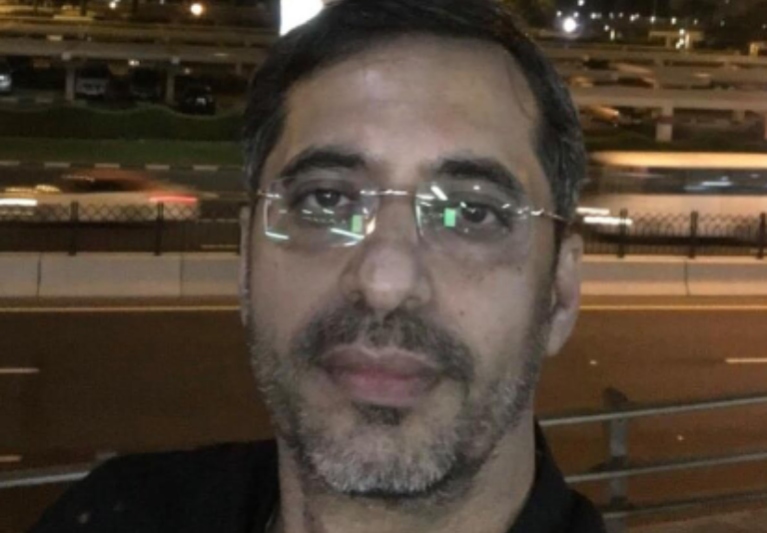
Dr. Javed Younas is a Professor of Economics at the American University of Sharjah. He is also affiliated with the Centre for Economic Research in Pakistan in Lahore. In his previous academic/research positions, he has been a Visiting Scholar at Syracuse University's Maxwell School of Citizenship & Public Affairs, Aman Research Fellow at Harvard University, Visiting Scholar at the Federal Reserve Bank of St. Louis, and faculty member at Central Michigan University.
His research focus lies in the areas of the political economy of conflicts and foreign assistance, international trade, energy economics, behavioral and experimental economics. He has published a number of papers in well-known refereed journals. His policy work has appeared and featured in national and international outlets. He has also secured several research grants. His professional information can be viewed at https://sites.google.com/site/javedyounas
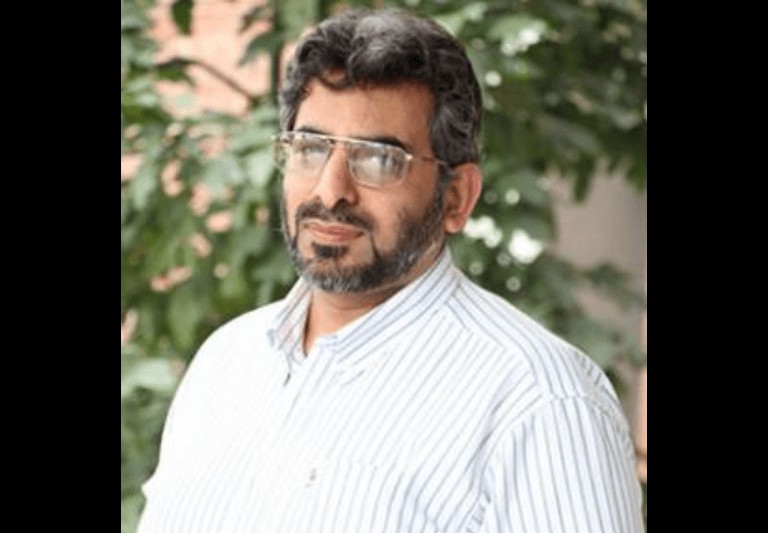
Nauman Ahmad Zaffar is the Project Director of the National Incubation Center and part of the Syed Babar Ali School of Science and Engineering, LUMS. He joined LUMS in 2010 as a full-time faculty member in the Department of Electrical Engineering. He is part of the LUMS Energy Optimization Committee and is working on establishing a research base at SSE in the area of Power Electronics, Smart Grids, and Renewable Energy.
His current areas of interest include dc/dc converters for Solar PV applications, dc/ac inverters for grid-tie distributed energy sources, and VFDs for industrial, off-grid, and automotive applications. His areas of work include understanding business needs, proposing and designing solutions, and carrying out the development, rollout, and support lifecycle of the solutions in the domains of Electric Utilities, Telecom, and Manufacturing. He has worked with Techlogix to establish and extend practice areas of Business Process Management, ERP implementation, Enterprise Architecture, and Software Product Engineering
Nauman Ahmad Zaffar received his BS (1990) and MS (1991) in Electrical Engineering from the University of Pennsylvania.
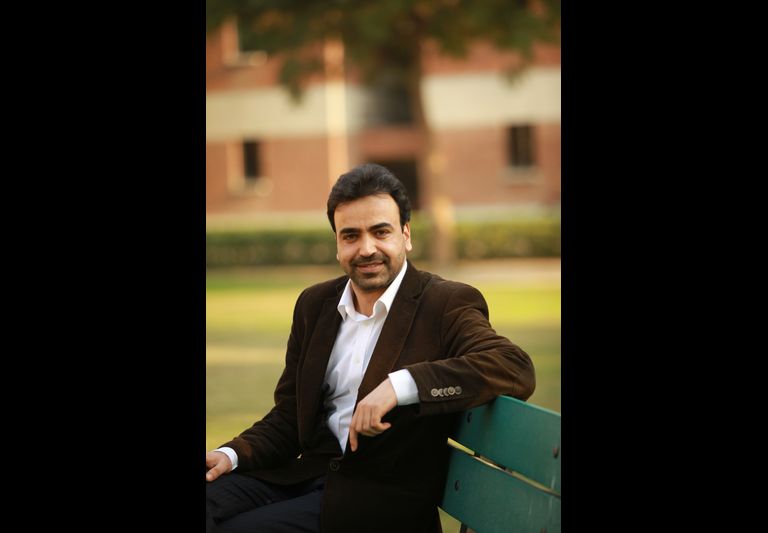
Dr. Muhammad Zaheer is an Assistant Professor at the Department of Chemistry and Chemical Engineering. He is a member of the Royal Society of Chemistry and the American Chemical Society. His research and teaching interests include environmental and sustainable chemistry. Dr. Zaheer’s research focuses on developing catalysts for renewable energy, green chemicals from biomass, and environmental remediation

Batool Zaidi is an Assistant Professor of Sociology at Western Washington University. She obtained her PhD in Sociology from the University of North Carolina at Chapel Hill in May 2019. Her research addresses gender inequality in the global South through the analysis of health outcomes, cultural norms, and development projects. Her three-article dissertation examined the relationship between gender inequality, son preference and child outcomes through analysis of family contexts.
Prior to completing her PhD, Batool was at the Population Council’s Islamabad office, where she worked on projects focusing on family planning, girls education, maternal health, the demographic dividend, and sex-selective abortions. She has a master’s degree in Population and Development from the London School of Economics and a bachelor’s degree in Economics from Mount Holyoke College.
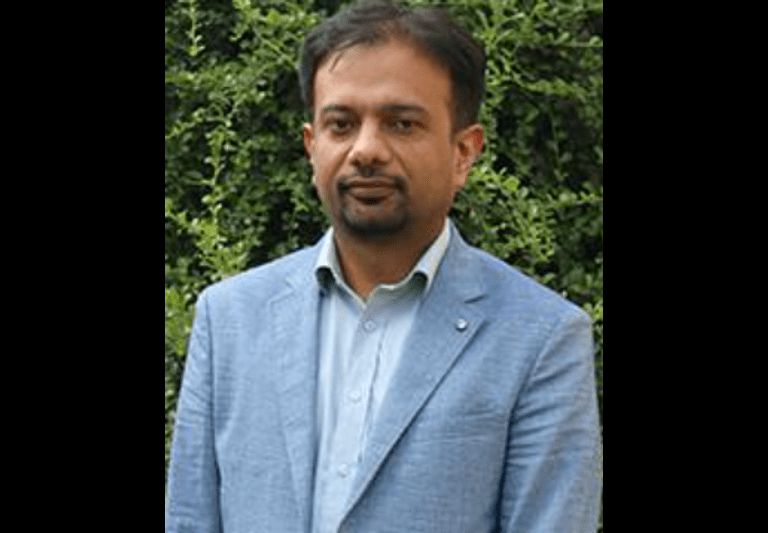
Muhammad Shoaib is an Assistant Professor at the Department of Chemistry and Chemical Engineering, SSE, LUMS.
His research work is focused on but is not limited to electrochemical energy storage, study of crystal structure, and electrochemical reaction mechanisms study. His research work has been published in several reputed international journals like Advanced Energys Materials, Chemical Society Reviews, Nano Energy, Angwandte Chemie, etc.
In 2010, he moved to Linnaeus University, Sweden for Engineering Management courses, and in 2012, he started a fully funded MS-Ph.D from Sungkyunkwan University, South Korea. After completing his Ph.D., he worked as a Post-Doc in the same department for 1 year. During his Ph.D., Shoaib won the Samsung Humantech award and DOES (Department of Energy Science, SKKU) fellowship award for his excellent research achievement.
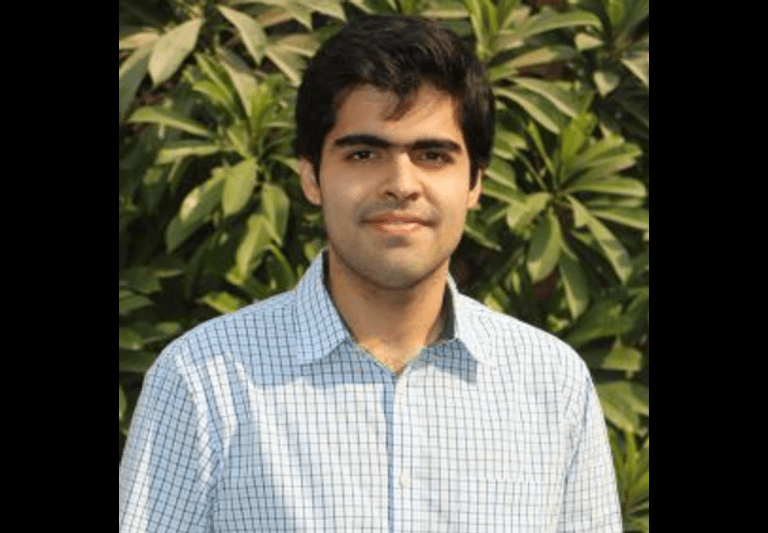
Dr. Ammar Ahmed Khan is an Assistant Professor at the Syed Babar Ali School of Science and Engineering, LUMS. At present, the focus of Dr. Ammar’s research is on understanding the self-assembly mechanisms of liquid crystalline physical gels, and applying them to DSSCs to increase the stability and lifetime. Furthermore, the interaction of organic-semiconductors with two-dimensional materials is also being investigated for chemical and biological sensing applications.
Dr. Khan completed his Ph.D. studies at the University of Cambridge. The focus of his Ph.D. research was studying the application of disc-like (discotic) liquid crystals as hole transport layers in hybrid organic/in-organic dye-sensitized and perovskite solar cells. Furthermore, he also studied the interaction of liquid crystalline phases with two-dimensional graphene layers for display and lasing devices.

Trained as an Immunologist and Molecular Microbiologist, Dr. Shaper Mirza is an Associate Professor at the Department of Biology, Syed Babar Ali School of Science and Engineering. Before joining LUMS, Dr Mirza served as an Assistant Professor at the University of Texas-Health Science Center, Brownsville and Houston campuses.
Working with a cohort of 2500 Mexican Americans living on the Texas-Mexico border, Dr. Mirza demonstrated the role of hyperglycemia in poorly controlled diabetes on immune impairments. She further demonstrated that hyperglycemia impairs immune cells in the body leading to increase in susceptibility to upper respiratory tract infections such as tuberculosis and pneumonia. This was the extension of her work that she performed during her PhD at University of Alabama at Birmingham (UAB), where focus of her studies was host-pathogen interaction, in infections caused by Streptococcus pneumoniae. Her research elucidated the mechanism(s) deployed by S. pneumonaie for causing infections and immune responses mounted by the host to restrict infections. The work was the first to demonstrate a role for host mucosal protein lactoferrin in preventing upper respiratory tract infections by S. pneumonaie.
Prior to her PhD studies, Dr. Mirza was instrumental in developing molecular diagnostics for rapid diagnosis of tuberculosis, Hepatitis C and Hepatitis B at the Department of Pathology-Aga Khan University-Karachi. Further, her work led to development of diagnostic serological and molecular methods for Crimean Congo Hemorrhagic Fever (CCHF) and Dengue fever.
Dr. Mirza was among the first five Fogarty Fellows from Pakistan. She was awarded the Fellowship to work on Sexually Transmitted Infections in Pakistan. She is currently an active member of American Society for Microbiology, American Diabetes Association, Pakistan Biological Safety Association, and Pakistan Infectious Diseases Society.
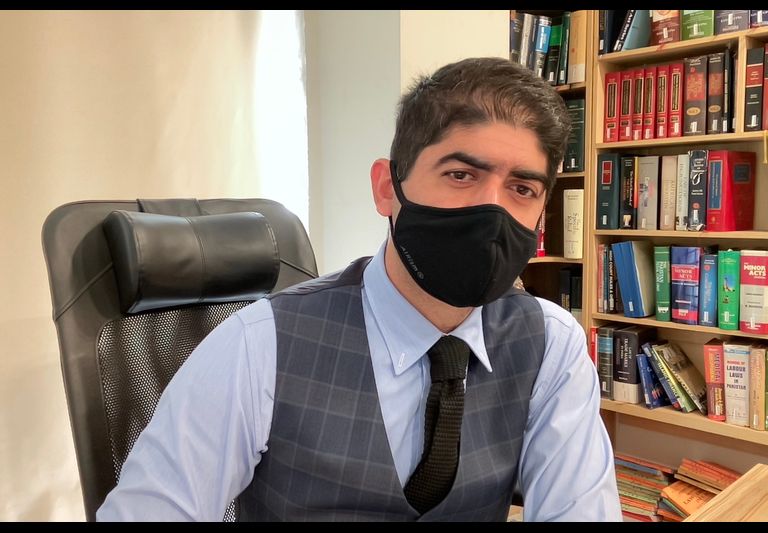
Waqqas Ahmad Mir is a lawyer based in Lahore and is a partner at Axis Law Chambers. He was called to the Bar of England and Wales in 2007 (Lincoln's Inn). The bulk of his practice consists of litigation in the areas of constitutional, commercial, taxation, competition, white-collar crime, anti-corruption, environmental and civil law. He also routinely advises clients on regulatory compliance regarding doing business in Pakistan and is frequently engaged to advise on merger control, labor and employment as well as the electronic crimes legislation.
Waqqas has been appointed amicus curiae on six different occasions by the Lahore High Court, Lahore in matters relating to taxation, environment, local government, the relationship between the Code of Criminal Procedure, and the Prevention of Electronic Crimes Act, constitutional interpretation, etc. Waqqas served as Joint Director (Legal Division) at Competition Commission of Pakistan (CCP) from 2009 to 2010. For the past few years, he has contributed the annual Pakistan Chapter to Getting the Deal Through’s Merger Control guide (published by Law Business Research Limited, UK, in collaboration with Freshfields Bruckhaus Deringer).

'Dr. Sameen A. Mohsin Ali completed her PhD in Politics from SOAS University of London in 2018. Her doctoral thesis, "Staffing the State: The Politicisation of Bureaucratic Appointments in Pakistan", explores the use of bureaucratic appointments by both politicians and bureaucrats to achieve particular outcomes. Sameen's teaching and research interests include bureaucratic and party politics and public health governance. She is currently working on a project, “Understanding Pakistan’s Immunization Problem: A transactional approach”, with Dr Samia W. Altaf, funded by the Shahid Hussain Foundation's Public Health Research Grant 2018-19 and 2019-20, and the Faculty Initiative Fund 2020-21.
Sameen is a faculty lead at the Technology for People Initiative (TPI), a non-profit applied research centre based at LUMS.
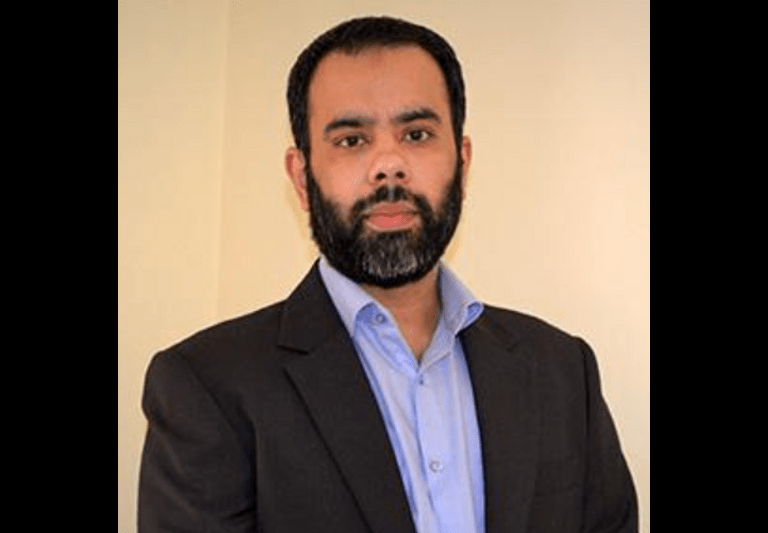
Zubair Khalid is an Associate Professor at the Syed Babar Ali School of Science and Engineering, LUMS. Dr. Khalid's research is focused on the development of new signal processing techniques to analyze signals defined on the sphere, analysis and processing of signals defined on the sphere find applications in various fields of science and engineering, such as cosmology, geophysics, acoustics, and medical imaging.
Dr. Khalid was awarded University Gold Medal and Industry Gold Medals from Siemens and Nespak for overall outstanding performance in Electrical Engineering during his undergraduate studies. Additionally, he was a recipient of an Endeavour International Postgraduate Award for his Ph.D. studies.
Dr. Khalid received his Ph.D. degree in Engineering from the Australian National University of Canberra, Australia in 2013
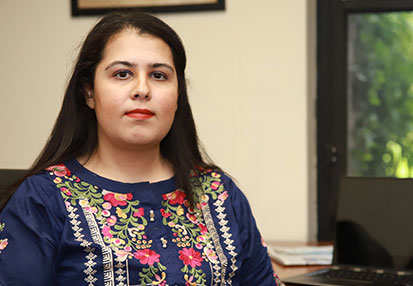
Dr. Sahar Asad is Assistant Professor of Economics at the Lahore University of Management Sciences (LUMS). She received her Ph.D. in Economics from George Washington University in 2016. Her research interests are primarily in the area of empirical development economics. She uses both experimental and quasi-experimental methods to answer questions within development economics.
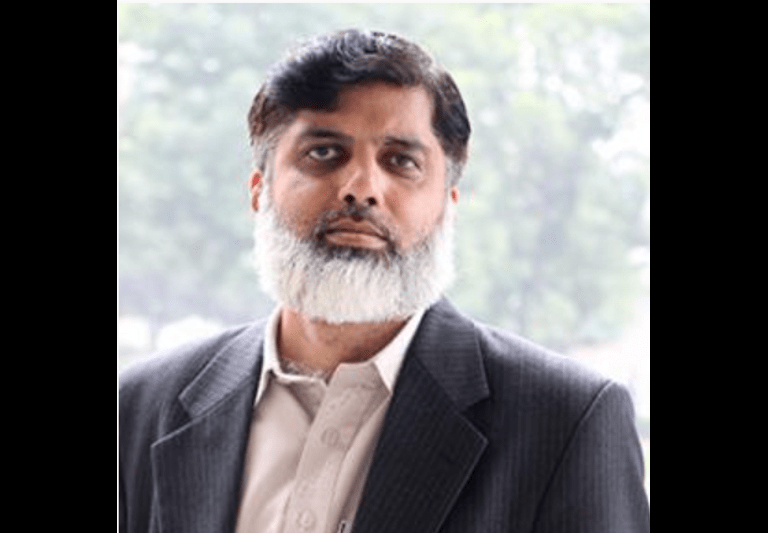
Mian Muhammad Awais is an Assistant Professor at the Syed Babar Ali School of Science and Engineering, LUMS.
Prior to joining LUMS, Dr. Awais conducted European Union research and development projects for a UK-based SME. His Ph.D. work is related to the development of online models for the parametric estimation of solid fuel-fired industrial boilers. Dr. Awais has also conducted research work on a class of iterative methods pertinent to Krylov subspaces for optimization, such as the oblique projection and implicitly restarted model reduction methodologies.
Dr. Awais received his Ph.D. from Imperial College, University of London.

Dr. Abid Aman Burki is a Mahbub ul Haq Research Centre fellow who served as Professor at the Economics Department at LUMS until 2020. From 2003 to 2010, Dr. Burki was Director of the Centre for Management and Economic Research (CMER) at LUMS. Prior to joining LUMS, he has been a Professor (1999-2002) and Head of Economics Department (2000 – 2002) at the Quaid-i-Azam University where he has held other academic positions since 1985. He has also taught at the Kansas State University and the BZ University.
His main current research areas are in technical efficiency and productivity, dairy sector, health sector, agriculture sector, industrial sector, inequality and poverty. He has authored or co-authored more than 100 articles, book chapters and professional reports. His academic research has appeared in World Development, Energy Economics, Applied Economics, Journal of Economics & Business, Land Use Policy, Journal of Development Effectiveness, Economics Bulletin, Pakistan Development Review and other journals.
He has received several research grants and has been a consultant to the Government of Pakistan, UNICEF, UNESCO, World Bank, JICA, IFPRI, Nestle Pakistan, Tetra Pak Pakistan, Indus Motor Company, GIZ, Oxfam, IGC, among others.
He holds a PhD degree in Economics from Kansas State University and is the recipient of the 2001 President of Pakistan’s academic distinction award Izaz-i-Fazeelat.
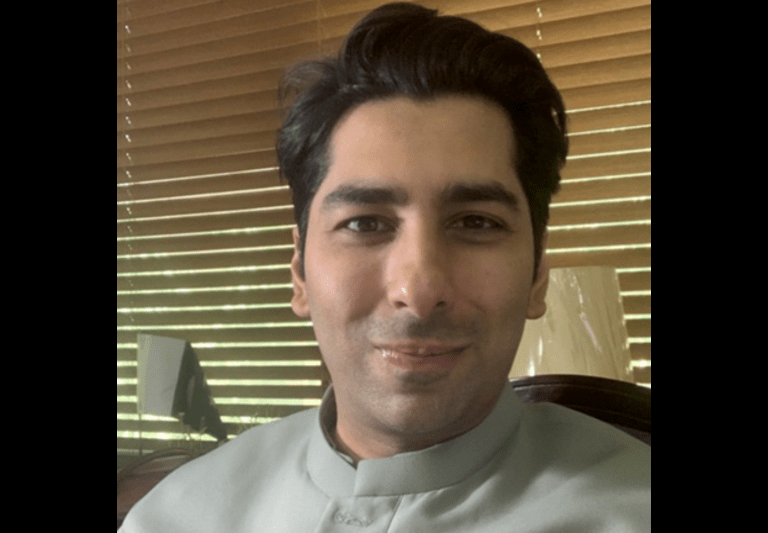
Asad Ejaz Butt is a public policy professional trained in Economics and International Development Studies with over 10 years’ experience in areas of public financial management reforms such as strategic planning & budgeting, expenditure reviews, development planning at local and subnational levels, fiscal transfer systems, cash and debt management strategies and macro-fiscal policies and regulations. His career started with ICF International where he modelled energy efficiency products for ICF’s demand-side management programs.
He has conducted several value-for-money (VfM) based PFM reform projects for both bilateral and multilateral donors including the EU and USAID in the energy sectors of Africa, US, Canada and Pakistan. He has advised UNDP Pakistan and GIZ to foster private sector engagement in the SDGs agenda. He holds a Master’s degree with double majors in Economics and International Development Studies from the University of Guelph, Canada prior to which he completed his undergraduate studies in Economics at York University, Canada.
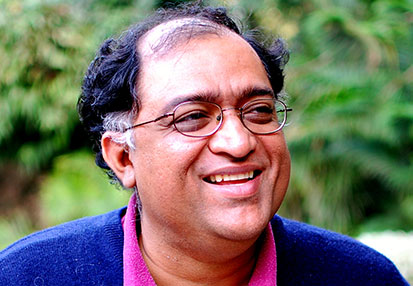
Ali Cheema serves as the Director of the Mahbub Ul Haq Research centre, and is an Associate Professor of Economics at the Mushtaq Ahmad Gurmani School of Humanities and Social Sciences, LUMS. Cheema is also a Senior Research Fellow at IDEAS Pakistan, co-founder of the centre for Economic Research in Pakistan (CERP), and a co-lead academic of the International Growth centre’s Pakistan programme. He is a member of the Board of Trustees of the Institute of Development Studies, Sussex and was the Chair of the Economics Department at LUMS from 2004-2010. He was also a founding member of the Stockholm Challenge Award-winning portal, Relief Information System for Earthquakes, Pakistan (RISEPAK).
His areas of research include economic development with a focus on human capital, inclusion and economic mobility, gender, public economics, comparative politics, economic history, and the economics of crime. His research combines extensive mixed-methods fieldwork, historical archival research, rigorous empirical analysis, and theory to offer insights into how political economy and historical foundations shape economic and political development. He holds a Ph.D. in Economics from Cambridge, an MPhil in Economics and Politics from Cambridge, a BA (Hons.) in Philosophy, Politics, and Economics (PPE) from Oxford where he was a Rhodes Scholar, and a BA in Mathematics and Statistics from Government College, Lahore. He was a visiting Fulbright and SAI Scholar at Harvard Kennedy School from 2010-11.
Dr. Ali Cheema is part of the board of directors for the State Bank of Pakistan since July 2022.
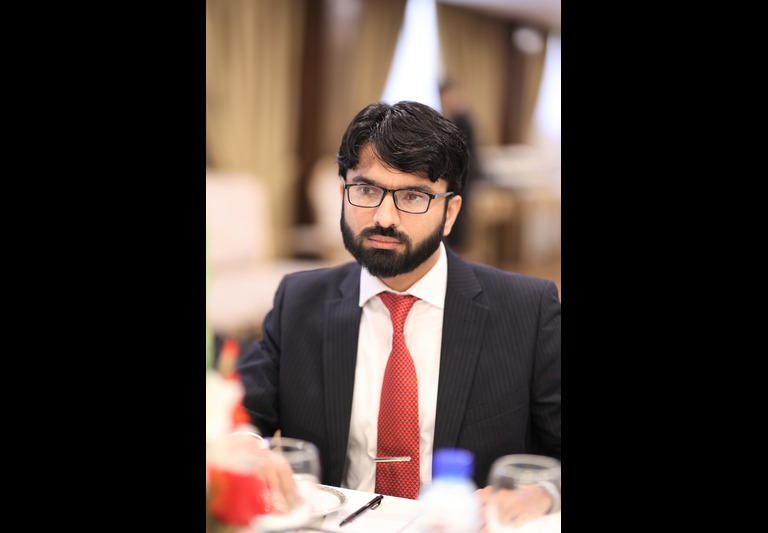
Usama Khawar currently serves as the Assistant Advocate General, Punjab at the Office of Advocate General Punjab, where he contributes to legal advocacy and policy formulation. In addition, he holds the role of adjunct faculty at the Shaikh Ahmad Hassan School of Law (SAHSOL) at LUMS, teaching courses on constitutional law and policy.
With a multifaceted approach to legal advocacy, Usama has demonstrated a profound interest in labor law and policy. His extensive litigation and advocacy efforts before the Supreme Court of Pakistan have led to significant advancements in the field of occupational safety and health (OSH), especially in the Punjab. Notably, his contributions played a pivotal role in the formulation of a comprehensive law on occupational safety and health in the province. As a testament to his expertise in this area, Usama authored a comprehensive report on OSH, published by the Human Rights Commission of Pakistan (HRCP).
In addition to his work in labor law and policy, Usama has been actively involved in advising the Punjab Government and Provincial Assembly on matters related to Local Government Law and Prison Reforms. He has been appointed to official committees constituted by the Punjab Government, where his insights and recommendations have informed key policy decisions.
Usama's research interests extend beyond labor law to encompass justice system reforms, policing, and local governance. He is a regular contributor to DAWN, a leading national newspaper, where he shares his insights on legal and policy matters. Additionally, Usama frequently appears on television programs to discuss pertinent issues related to law and policy, further amplifying his impact on public discourse.
Educationally, Usama holds a Master's degree from Columbia University, where he specialized in constitutional law. He further enriched his academic pursuits by obtaining another Master's degree from Central European University in Comparative Constitutional Law, solidifying his expertise in legal and policy domains.
In his capacity as a legal professional, Usama has actively championed the cause of local governments in Pakistan for over six years, engaging in litigation, organizational endeavors, and the creation of a groundbreaking course on Local Governments in Pakistan. His multifaceted contributions reflect his unwavering dedication to advancing democratic principles, social justice, and labor rights in the country.
Postal Address
LUMS
Sector U, DHA
Lahore Cantt, 54792, Pakistan
Office Hours
Mon. to Fri., 8:30 a.m. to 5:00 p.m.

